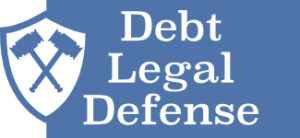
If you’ve been served with a notice that you are being sued for debt in Texas, you should not panic. You are likely one of the thousands of Texans who are notified of a pending debt lawsuit each month. However, you do need to respond to the debt claim in a timely fashion, to ensure you do not miss the deadline to defend yourself. It is best to speak with a debt defense attorney who offers a free consultation, to plan your strategy. Among other information you will receive in a debt defense consultation, you will likely be made aware of your rights as a defendant. Here’s an overview of the rights you have in a consumer debt lawsuit in Texas.
Rights Granted to Texans by the Fair Debt Collection Practices Act
Due to abusive, deceptive, and unfair debt collection practices that run rampant in the debt collection industry, the U.S. government enacted the Fair Debt Collection Practices Act (FDCPA) in 1977. This act passed sweeping laws to protect consumers from harassment and otherwise abusive actions by debt collection agencies.
This means that as a defendant in a consumer debt lawsuit, your rights protect you from harassing and abusive behavior including:
- Continuing to call or contact you after you’ve retained an attorney
- False representation by the debt collection agency as being affiliated with law enforcement or the U.S. government
- Falsely claiming the statute of limitations on the debt hasn’t passed, when it has
- Threats of property confiscation
- Threats of imprisonment
- False claims that you have committed a crime
- Falsifying or modifying letters to make them appear to come from the government or court
- Failing to disclose that the letter or call originates from a debt collection agency
- Using deceptive methods to obtain personal information (bank accounts, etc.)
- False claims that the debt collection agency is a law firm or an attorney’s office
- Contacting you early in the morning or late at night (before 8 am or after 9 pm)
- Continuing to contact you at work after you have told them to stop
- Contacting your family, friends, or others about your debt without your express consent
- Other harassing or deceptive tactics
In addition to protections that you have under the FDCPA, the state of Texas also has state laws that protect you from harassment.
Unfair Practices Debt Collectors May Try to Use
Debt collection agencies look for any and all ways to get consumers to pay a debt that they allegedly owe. However, there are many cases when the debt no longer exists. This includes debt that:
- Has already been paid
- Is in dispute
- Has been discharged through bankruptcy
- Does not belong to the person being contacted
Your Property Rights as Defendant in a Consumer Debt Lawsuit
If you are served with a complaint that you are being sued for consumer debt, you may breathe easy knowing that your personal property cannot be confiscated. Debt collection agencies cannot try to confiscate your home, car, furniture, clothing, tools, pets, or other belongings while you are working to resolve your alleged debt.
You Have a Right to Defend Yourself in a Consumer Debt Lawsuit
Above all else, you have the right to zealously defend yourself in a consumer debt lawsuit. Debt Legal Defense can help. We provide a free debt lawsuit consultation. Flat fee rates with flexible payment plans are available for our services. If you’ve received notice that you’re being sued for consumer debt in Texas, contact our experienced debt defense attorneys today.





